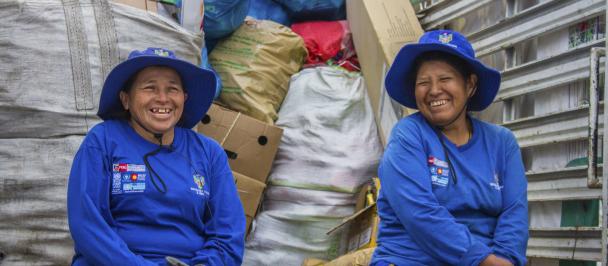Statement by UN Development Programme Administrator Achim Steiner on the outcome of the COP28 climate negotiations
December 13, 2023
As the ‘COP28’ climate negotiations in Dubai concluded, the final declaration agreed to by more than 190 countries and territories shows some serious strides forward, while many frustrations remain.
The outcome of COP28 has secured the 1.5 degree Celsius goal as the ‘North Star’ for collective climate ambition. Given 2023 is the hottest year on record, reaffirming that goal underscores the urgency of climate action at speed and scale, aligning with what the science is telling us.
For the first time, nations have formally agreed to transition away from fossil fuels in a just and equitable manner. These are at the very core of humanity’s climate problem, as the UN Secretary-General reiterated in his closing remarks.
Some are understandably frustrated that the agreed language could have been stronger on this issue. But it remains the most unequivocal signal to date that the world is moving beyond the fossil fuel era.
The declaration should be considered the starting point for more ambition, not the endpoint. Fundamentally, countries have agreed that successful economies of the future will be net zero.
In Dubai, parties also achieved a breakthrough: the establishment of a Loss and Damage Fund, with nearly 800 million dollars of capitalization that took place on the opening day of the negotiations. The fund will help those suffering most from the effects of climate change whilst being the least responsible.
However, on the contentious issues of finance, COP negotiations in Dubai continue to fall short on what the most vulnerable nations identify they urgently need: sufficient finance to allow them to meet needs and carry out climate action at the level of ambition necessary.
Climate resources did not dramatically increase to support the most vulnerable nations to end the use of fossil fuels and to adapt to the catastrophic effects of a hotter climate that we see happening every day around the world.
This critical issue of freeing up sufficient finance to address the climate crisis will be the focus of next year’s COP. But we cannot wait another year. Investments need to happen now. It is time for a surge in finance, including for mitigation, adaptation, loss and damage, and reform of the international financial architecture.
At COP28, the UN Development Programme had a prominent role in connecting the discussions in the negotiating rooms with action on the ground, while providing in-depth technical support to developing country delegations.
Over the next two years, governments will prepare a third round of five-year climate action pledges (known as ‘Nationally Determined Contributions’ or ‘NDCs) under the framework agreed in Paris in 2015. As this year’s negotiations come to an end and we look ahead, it is critical that these new commitments are bold and ambitious enough to keep alive the goal of a limit of 1.5 degrees Celsius global temperature rise.
UNDP, through its Climate Promise, will support developing countries in the next round of NDCs, and for scaled-up support for climate action.
COP28 provided signals on the way forward. Now nations must work together to decarbonize their economies in a way that is just and equitable for all.

 Locations
Locations




